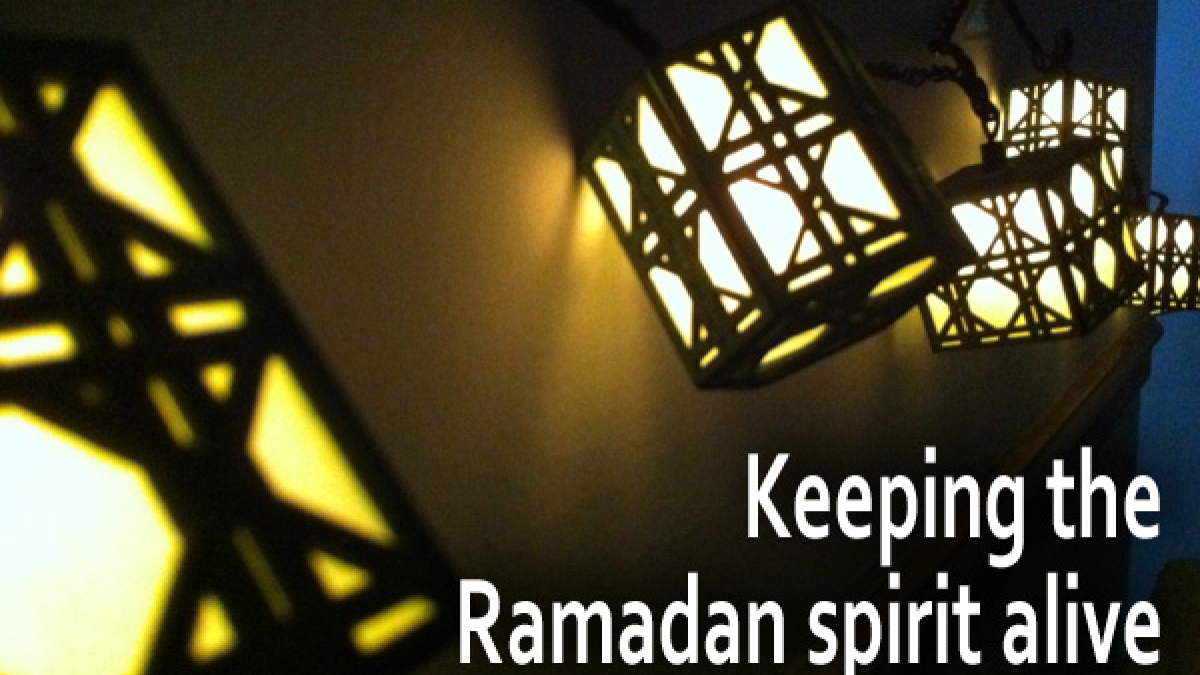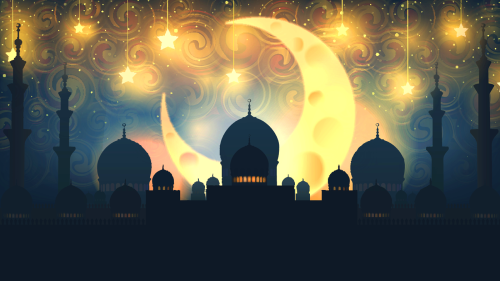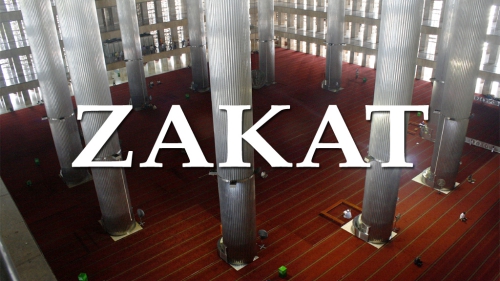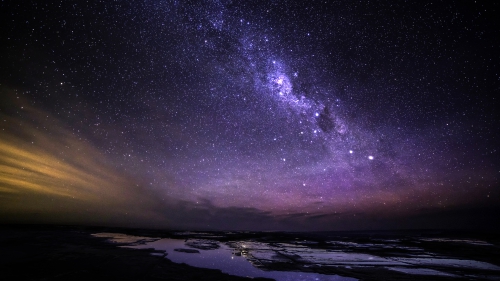Keeping Ramadan spirit alive

The Muslim world goes topsy-turvy in Ramadan. Eating, sleeping and socializing routines are turned back to front - the first meal is eaten as the sun sets. The initial morsel of food into our mouths will usually be a sweet, succulent date, according to the Islamic tradition. But are the hours that follow really that religious?
Contemporary changes to the Ramadan culture mean that the spiritual significance of Ramadan is slowly being lost. Abstaining from physical intake during daylight hours - which means food, drink, and sex - with the intention of getting closer to the Divine, has a myriad of philosophies and meanings.
It allows appreciation of the suffering of the poor and hungry, a chance to devote less time to the physical and more time to the spiritual, a recognition that we can live happily and successfully with less than we have.
Come nightfall, these good intentions are put to one side, as though Ramadan is for daylight hours only, and the reveling begins.
Mothers cook sumptuous meals for their families. The food is indulgently calorific to the point that many Muslims say they actually gain weight rather than lose it as one might expect. The philosophy of restraint and frugality adhered to during the day has its mirror image in the excessive culinary indulgence after dark.
One of the religious traditions of Ramadan is to feed others at the time of iftar in order to gain reward. Dinner invitations thus abound, and these iftar gatherings are warm social events. But in many places they turn into arenas for showmanship, outdoing friends and families with ever-extravagant menus. "People will announce at the end of the meal how much it cost," said one Egyptian woman to emphasize the one-upmanship that dominates what should be an occasion of sharing and community.
Once the iftar is over, there is a wide choice of entertainment. Those who are extrovert will find their way to newly erected Ramadan tents, to smoke shisha and chill out with friends for the whole night, going from party to party until dawn. Other families will stay at home to watch the multitude of soap operas that dominate Ramadan. In Saudi Arabia last year it was claimed that there were 64 such soap operas broadcast each night, staggered over time so audiences could watch as many as possible.
This is not a comment on the values or quality of the soaps, or the claims by some clerics that they are "debauched". It is simply an observation that these soap operas prey on the communal feeling that is generated in Ramadan and profit from it. The audience is understandably drawn toward the high level of entertainment but inadvertently becomes distracted from the sweet pleasures of contemplation and social intercourse of Ramadan.
And let's not forget the shopping. Shops are open later than ever, and it seems that Ramadan is not a time of midnight contemplation, but rather just a prelude to Eid, a day to show off your new clothes. Ramadan shopping festivals are becoming more common, as is the compulsion to purchase and give Eid presents to a wide circle of acquaintances.
Instead of cutting back on the desire to consume, we end up with heightened consumption in these 30 days, whether that be in restaurants or in retail.
This is not to say that the Muslim world has become a month-long consumerist orgy - far from it. The social and spiritual temperature of Muslim communities is high and mosques teem with passionate worshippers.
What may surprise many who live in majority Muslim countries is that this sense of community and faith is particularly acute in countries where Muslims are minorities.
In these countries, if you are fasting you have to make an active choice to go against the grain of mainstream society. You still have to go to work where you can stare longingly at your colleagues drinking coffee, or attend meetings that run across the iftar time. You have to really know and understand why you are fasting, rather than just being swept up in the maelstrom. There is a sense of community purpose in these countries and an overwhelming push toward spiritual success.
The energy is so focused that I have known Muslims who come to Britain leaving Muslim countries behind in order to have a more spiritually profitable month.
As Ramadan's religious significance is slowly eclipsed by its commercial and cultural status, then it is robbed of its meaning, and ultimately of its importance. That is exactly what happened in 1960 when the president of Tunisia, Habib Bourguiba, wanted to cancel Ramadan. He felt that although Ramadan was a "beautiful custom", it "paralyzed our society".
It is a salutary tale of how, when religious occasion turns into culture, it becomes vulnerable to abuse.
There are some who will say I am being a killjoy and too pious. Others will say that if mothers want to spoil their families with delicious food after working hard on their fasts all day, then that is their right. There are those who will say that spending the night chatting away in shisha bars or comparing notes on soap operas increases the sense of community and social cohesion.
These outcomes are all good things - part of the magic of Ramadan, no doubt. And of course there is no compulsion in how you spend Ramadan. You do not have to sit on a prayer mat all hours of the day. But I do see a worrying trend when you piece each of these actions together. Each one may be justifiable because everyone has choice, but if you step back, you start to see that the meaning and context of Ramadan is slowly being lost. If we accept these justifications then we must be wary of opening ourselves to the charge of hypocrisy.
Ramadan and Eid are not the only occasions to have suffered this slow and insidious dilution of meaning and impact. Practicing Christians in the Western world complain that Christmas has been sucked dry of its religious meaning.
Other festivals, too, have lost their meaning. Easter was about rebirth and renewal, but now focuses on chocolate eggs and cute bunnies. And Lent, which was a 40-day period of frugality and restraint - almost akin to Ramadan itself in its ethos - has been distilled down to Mardi Gras, pancakes and gaudy carnivals.
Some people will bristle at the comparison of the way that Christmas has been usurped by consumerism with the contemporary experience of Ramadan. But the similarities are striking as the evidence above shows.
You do not have to be religious to appreciate that the social and ethical meaning of festivals/occasions such as Christmas, Ramadan and Eid have a great deal to contribute to the morality of human society.
For this reason, Muslims add their voices to these complaints, as part of the faith communities who share a concern about the sapping of meaning and moral compass from these occasions. However, it often turns into pointing fingers at the West for becoming "Godless" or "decadent" due to the excessive commercialization, while turning a blind eye to the same challenges in the Muslim world.
Is this a case of pot calling the kettle black?
Ramadan does not have to be, and should not be, sober pious asceticism. Of course not. Enjoyment, sharing and happiness in our togetherness are critical components of Ramadan. But Ramadan should be about more than gluttony, shopping and vacuous entertainment.
We do, in fact, need to recognize and acknowledge the place of Ramadan's material pleasures. By being honest about the importance of the physical, we can de-prioritize it in favor of the spiritual and moral at least for the 30 days of Ramadan.
This de-prioritization is what makes Ramadan special in the first place. By withholding the importance of the physical self, Ramadan is about recognizing the importance of our individual spirit, and about finding our place as souls, not bodies, in the society in which we live.
Shelina Zahra Janmohamed is a British commentator on Islam and author of "Love in a Headscarf", a new memoir of growing up as a Muslim woman.
Related Suggestions
When I came to Islam as a convert I was drawn by its premise of individual responsibility.
Al Adl, Al Malik will judge all of mankind on their day of judgment, regarding their behavior.
All one can do is celebrate the Holy Month in a sincere heart and the way I understand it should be honored. Each individual is given direction or not by the Most High. To be a worthy example of conduct is all we can do. Insha Allah, Masha Allah

















